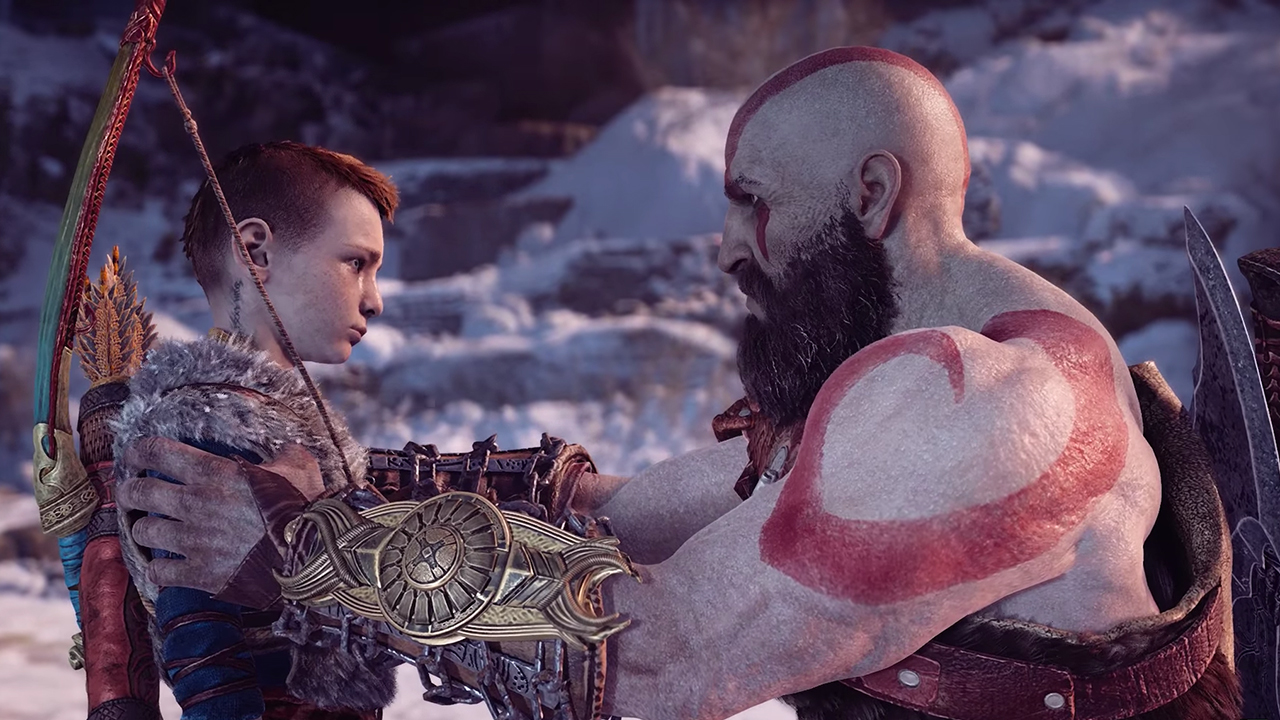
(Image credit: Sony)
“Change is possible”. This statement from creative director Cory Barlog opens the Raising Kratos documentary available on YouTube. Released five years ago, it captures the journey of creating the groundbreaking God of War reboot, starting from its initial idea to the unforgettable E3 reveal and its 2018 release. I’ve lost track of how many times I’ve watched it since completing the epic journey of Kratos and Atreus. But Barlog’s words continue to echo in my mind as we celebrate the 20th anniversary of the original 2005 God of War.
Before the reboot, the series was unknown territory for me. In hindsight, my 13-year-old self probably wouldn’t have appreciated the early games’ brutality. Yet, the buzz surrounding Kratos’ return in 2018 coaxed me to step outside my comfort zone, a decision for which I am endlessly thankful. The statement “change is possible” resonates deeply as it encapsulates the essence of what makes the reboot an unforgettable experience.
Not only has Sony Santa Monica Studio crafted a compelling narrative with relatable characters, but they’ve also achieved a remarkable feat in rejuvenating a famed series. Sony Santa Monica Studio’s former co-founder Shannon Studstill highlighted in the documentary that there’s significant risk in navigating a reboot. Reviving a series and charting a fresh course is a daunting task, particularly for a protagonist like Kratos, known for his violent past, including the harrowing act of killing his family.
In a PlayStation blog by Barlog prior to the game’s launch, he reflected on making Kratos a once loathed anti-hero into a character deserving empathy. That transformation is no small feat, yet the team succeeded profoundly. The emotional connection I felt in God of War and its sequel, God of War Ragnarok, with characters like Freya, showcases the depth and growth that Kratos and Atreus experience.
The reboot narrates a tale of redemption and the profound bonds of family against a rich tapestry of Norse mythology. At its core, it’s about a father and son learning and growing together. For Kratos, Atreus becomes the axis upon which his world shifts, prompting profound self-reflection. Meanwhile, Atreus embarks on discovering his origins alongside his father’s guidance. Their evolving relationship and encounters with other characters linger with me even now. The diverse characters in God of War rank among my favorites, due in large part to the extraordinary performances that brought them to life.
This cinematic masterpiece is brimming with action and unexpected twists. Yet, beyond pure entertainment, it serves as a reminder that there’s always room for growth and deeper understanding. At the reboot’s conclusion, Athena tells Kratos, “you cannot change; you will always be a monster“, to which he powerfully replies, “I know“. However, Kratos ultimately defies both Athena and himself. The reboot’s success in captivating a new audience mirrors Kratos’ personal evolution, affirming Barlog’s mission that “change is possible“.
Looking forward to the future, upcoming PS5 games offer much excitement and anticipation.